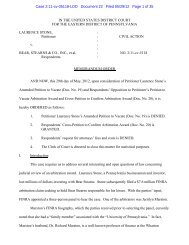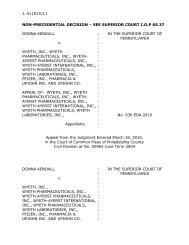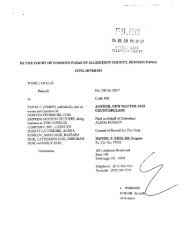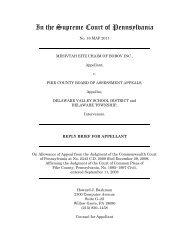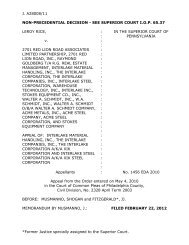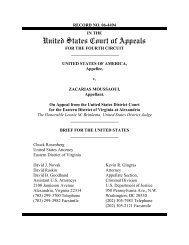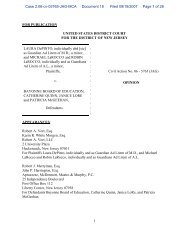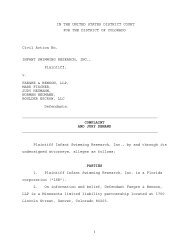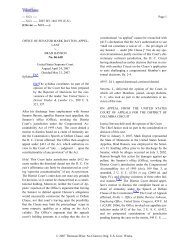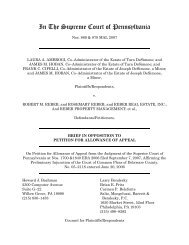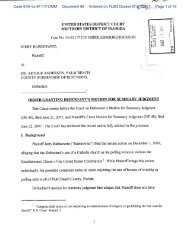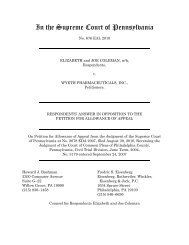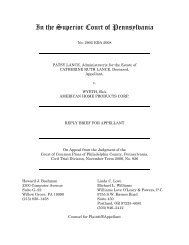petition for rehearing en banc - How Appealing
petition for rehearing en banc - How Appealing
petition for rehearing en banc - How Appealing
Create successful ePaper yourself
Turn your PDF publications into a flip-book with our unique Google optimized e-Paper software.
Case: 07-4080 Docum<strong>en</strong>t: 108 Filed: 10/29/2010 Pages: 15<br />
2 Nos. 07-4080, 08-1030, 08-1072, 08-1106<br />
mail and wire fraud, in violation of 18 U.S.C. §§ 1341 and<br />
1342, and def<strong>en</strong>dant Black had also be<strong>en</strong> convicted of<br />
obstruction of justice, in violation of 18 U.S.C. § 1512(c).<br />
The judge had s<strong>en</strong>t<strong>en</strong>ced Black to a total of 78 months<br />
in prison, Atkinson and Boultbee to 24 and 27 months,<br />
and Kipnis to probation with six months of home det<strong>en</strong>tion.<br />
The three fraud counts (which we’ll treat as two, because<br />
two of the three relate to transactions with the<br />
same company, APC) were submitted to the jury under<br />
two theories: that of a scheme of fraudul<strong>en</strong>t appropriation<br />
of money to which Hollinger was legally <strong>en</strong>titled<br />
(we’ll call this “pecuniary fraud”), and that of a scheme<br />
to deprive Hollinger of the latter’s “intangible right of<br />
honest services,” 18 U.S.C. § 1346, am<strong>en</strong>ding sections 1341<br />
and 1342. The first theory required that the def<strong>en</strong>dants<br />
have obtained a pecuniary b<strong>en</strong>efit at the exp<strong>en</strong>se of<br />
Hollinger; the second did not; and because the jury returned<br />
a g<strong>en</strong>eral verdict on the fraud counts, we cannot<br />
be absolutely certain that it found the def<strong>en</strong>dants guilty<br />
of pecuniary fraud as well as, or instead of, honestservices<br />
fraud.<br />
After we affirmed, the Supreme Court held that the<br />
latter <strong>for</strong>m of fraud requires proof that the def<strong>en</strong>dant(s)<br />
received a bribe or kickback, as otherwise section 1346<br />
would be unconstitutionally vague. United States v.<br />
Skilling, 130 S. Ct. 2896, 2931 (2010); see United States v.<br />
Cantrell, 617 F.3d 919, 921 (7th Cir. 2010); United States v.<br />
Urciuoli, 613 F.3d 11, 17-18 (1st Cir. 2010). That was not<br />
proved here and so the def<strong>en</strong>dants could not lawfully



